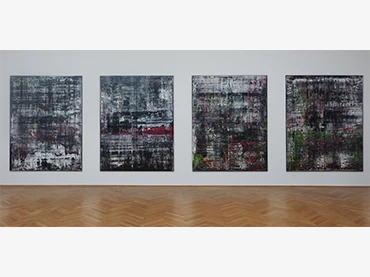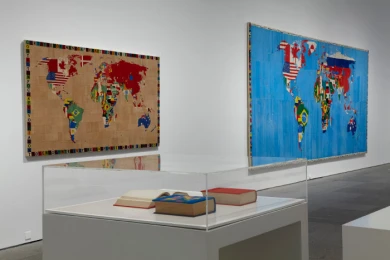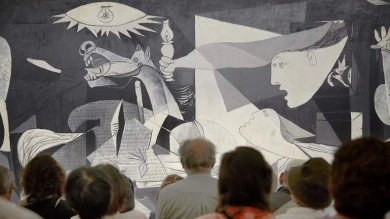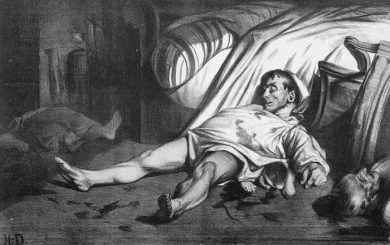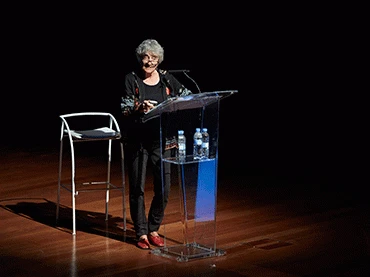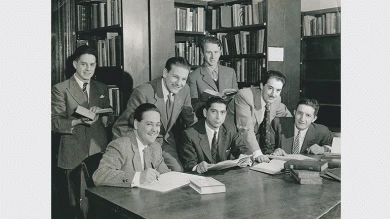-
Thursday, October 19, 2017 Nouvel Building, Auditorium 200
Challenges of the International Circulation of the Memory of Critical Resistance of the Archives of Chilean art
Nouvel Building, Auditorium 200
There have been many writings on the subject of the archives in the international art scene during the last twenty years. The main interest -historical and museographic- lies in exploring the hidden memories of artistic practices of opposition and resistance that, in contexts of dictatorship like certain countries in Latin America during the decades of 1970s and 1980s, have articulated different modes of relationship between "art" and "politics" with their heterodox languages. Passing through networks of international mediation, the transit of the archives between the South and the North exposes its documentary sources to several problems of institutional translation. Taking as an example the Chilean case, this lecture invites to share a reflection on the waste and surplus left by the metropolitan circulation of these art archives and on the strategies needed to reactivate their critical memories.
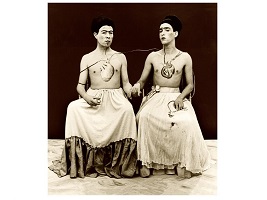
-
Friday, October 20, 2017 Sabatini Building, Auditorium
Arte y política: 2005-2015 (fragmentos)
Sabatini Building, Auditorium
Film, digital archive, 65', 2016. Presented by Nelly Richard and Q&A moderated by Cecilia BarrigaThis film, directed by Nelly Richard and produced by Mariaris Flores, Lucy Quezada and Diego Parra, looks at a sequence of initiatives which reflect on the cross-overs of signs and powers that dominate the political, economic, social and cultural sphere, spaces in which artistic creation and critical thought are debated in Chile. The fragments of this video combine works and voices which approach politics in art according to different strategies of form and content, language and subjectivity, symbolic representations and political-cultural intervention.
Following the screening of the film, there will be a conversation between Nelly Richard and the Chilean filmmaker Cecilia Barriga. The work of Cecilia Barriga conceives cinema as a space to make visible the struggles for representation of the social movements at large. This video uses as one of its sources her work on the student revolts in Chile after 2011.

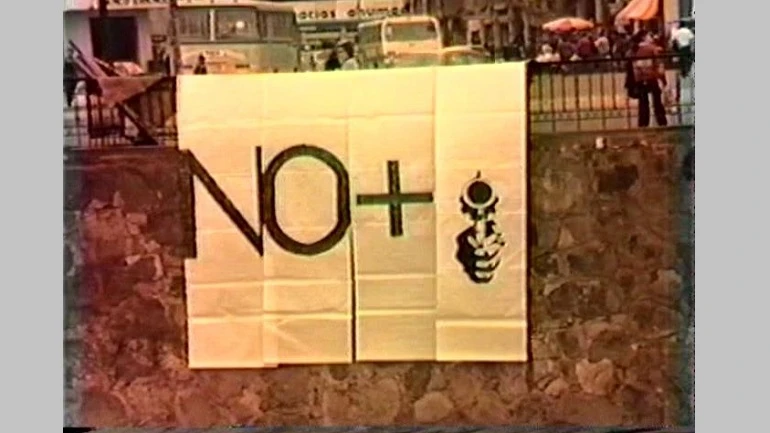
Held on 19, 20 Oct 2017
The Museo Reina Sofía master lectures, which mark the start of the Study Centre’s academic activity every year, set out to explore the different approaches and methodologies which have stretched art history in recent times. These lectures, which came into being in 2010, have been conducted by eminent art historians and theorists such as Linda Nochlin, T. J. Clark, Hans Belting, Simón Marchán and Benjamin Buchloh.
For this course the guest lecturer will be the essayist, art critic, cultural theorist, activist and Chile-based curator Nelly Richard (1948). Richard’s theoretical work is conspicuous for crossing over debates on identity and gender with a critique of the production of meaning stemming from French post-structuralist thought. Her noteworthy publications include Arte en Chile desde 1973: escena de avanzada y sociedad (1987), Chile, arte actual (1988), Textos estratégicos (2000) and Feminismo, género y diferencia(s) (2008).
This year, the programme is divided into two sessions: a lecture which puts forward a reflection on the relationship between art, gender, culture and society in the art scene in Chile, and the screening of the video Arte y política: 2005-2015 (fragmentos) [Art and Politics: 2005–2015 (Fragments)], a sequence of exhibition projects which debate the friction and dichotomies established between artistic creation and critical thought over the past decade in Chile.
In collaboration with
Organised by
Museo Reina Sofía
Educational program sponsored by

Participants
Nelly Richard. Theorist and essayist. Founder and director of Revista de Crítica Cultural (1990–2008), and director of the M.A. in Cultural Studies at the University of Arts and Social Science ARCIS (2006–2013). She is the author of a wide array of national and international publications, including Diálogos latinoamericanos en las fronteras del arte (2014), Crítica y Política (2013), Crítica de la memoria (2010), Feminismo, género y diferencia(s) (2008), Fracturas de la memoria. Arte y pensamiento crítico (2007), Residuos y metáforas. Ensayos de crítica cultural sobre el Chile de la transición (1998), La insubordinación de los signos: cambio político, transformaciones culturales y poéticas de la crisis (1994), Masculino / Femenino (1993) and Márgenes e Instituciones (1986, reedición en 2008). Furthermore, she curated the Chilean Pavilion at the 56th Venice Biennale in 2015, under the title Poéticas de la disidencia: Paz Errázuriz – Lotty Rosenfeld (The Poetics of Dissidence: Paz Errázuriz – Lotty Rosenfeld).
Más actividades
![Tracey Rose, The Black Sun Black Star and Moon [La luna estrella negro y negro sol], 2014.](https://recursos.museoreinasofia.es/styles/small_landscape/public/Obra/AD07091_2.jpg.webp)
On Black Study: Towards a Black Poethics of Contamination
Monday 27, Tuesday 28 and Wednesday 29 of April, 2026 – 16:00 h
The seminar On Black Study: Towards a Black Poethics of Contamination proposes Black Study as a critical and methodological practice that has emerged in and against racial capitalism, colonial modernity and institutional capture. Framed through what the invited researcher and practitioner Ishy Pryce-Parchment terms a Black poethics of contamination, the seminar considers what it might mean to think Blackness (and therefore Black Study) as contagious, diffuse and spreadable matter. To do so, it enacts a constellation of diasporic methodologies and black aesthetic practices that harbor “contamination” -ideas that travel through texts, geographies, bodies and histories- as a method and as a condition.
If Blackness enters Western modernity from the position of the Middle Passage and its afterlives, it also names a condition from which alternative modes of being, knowing and relating are continually forged. From within this errant boundarylessness, Black creative-intellectual practice unfolds as what might be called a history of touches: transmissions, residues and socialities that unsettle the fantasy of pure or self-contained knowledge.
Situated within Black radical aesthetics, Black feminist theory and diasporic poetics, the seminar traces a genealogy of Black Study not as an object of analysis but as methodological propositions that continue to shape contemporary aesthetic and political life. Against mastery as the horizon of study, the group shifts attention from what we know to how we know. It foregrounds creative Black methodological practices—fahima ife’s anindex (via Fred Moten), Katherine McKittrick’s expansive use of the footnote, citation as relational and loving labour, the aesthetics of Black miscellanea, and Christina Sharpe’s practices of annotation—as procedures that disorganise dominant regimes of knowledge. In this sense, Black Study is approached not as a discrete academic field but as a feel for knowing and knowledge: a constellation of insurgent practices—reading, gathering, listening, annotating, refusing, world-making—that operate both within and beyond the university.
The study sessions propose to experiment with form in order to embrace how ‘black people have always used interdisciplinary methodologies to explain, explore, and story the world.’ Through engagements with thinkers and practitioners such as Katherine McKittrick, C.L.R. James, Sylvia Wynter, Christina Sharpe, Fred Moten, Tina Campt, Hilton Als, John Akomfrah, fahima ife and Dionne Brand, we ask: What might it mean to study together, incompletely and without recourse to individuation? How might aesthetic practice function as a poethical intervention in the ongoing work of what Sylvia Wynter calls the practice of doing humanness?

Intergenerationality
Thursday, 9 April 2026 – 5:30pm
This series is organised by equipoMotor, a group of teenagers, young people and older people who have participated in the Museo Reina Sofía’s previous community education projects, and is structured around four themed blocks that pivot on the monstrous.
The third session gazes at film as a place from which to dismantle the idea of one sole history and one sole time. From a decolonial and queer perspective, it explores films which break the straight line of past-present-future, which mix memories, slow progress and leave space for rhythms which customarily make no room for official accounts. Here the images open cracks through which bodies, voices and affects appear, disrupting archive and questioning who narrates, and from where and for whom. The proposal is at once simple and ambitious: use film to imagine other modes of remembering, belonging and projecting futures we have not yet been able to live.

Remedios Zafra
Thursday March 19, 2026 - 19:00 h
The José Luis Brea Chair, dedicated to reflecting on the image and the epistemology of visuality in contemporary culture, opens its program with an inaugural lecture by essayist and thinker Remedios Zafra.
“That the contemporary antifeminist upsurge is constructed as an anti-intellectual drive is no coincidence; the two feed into one another. To advance a reactionary discourse that defends inequality, it is necessary to challenge gender studies and gender-equality policies, but also to devalue the very foundations of knowledge in which these have been most intensely developed over recent decades—while also undermining their institutional support: universities, art and research centers, and academic culture.
Feminism has been deeply linked to the affirmation of the most committed humanist thought. Periods of enlightenment and moments of transition toward more just social forms—sustained by education—have been when feminist demands have emerged most strongly. Awareness and achievements in equality increase when education plays a leading social role; thus, devaluing intellectual work also contributes to harming feminism, and vice versa, insofar as the bond between knowledge and feminism is not only conceptual and historical, but also intimate and political.
Today, antifeminism is used globally as the symbolic adhesive of far-right movements, in parallel with the devaluation of forms of knowledge emerging from the university and from science—mistreated by hoaxes and disinformation on social networks and through the spectacularization of life mediated by screens. These are consequences bound up with the primacy of a scopic value that for some time has been denigrating thought and positioning what is most seen as what is most valuable within the normalized mediation of technology. This inertia coexists with techno-libertarian proclamations that reactivate a patriarchy that uses the resentment of many men as a seductive and cohesive force to preserve and inflame privileges in the new world as techno-scenario.
This lecture will address this epochal context, delving into the synchronicity of these upsurges through an additional parallel between forms of patriarchal domination and techno-labor domination. A parallel in which feminism and intellectual work are both being harmed, while also sending signals that in both lie emancipatory responses to today’s reactionary turns and the neutralization of critique. This consonance would also speak to how the perverse patriarchal basis that turns women into sustainers of their own subordination finds its equivalent in the encouraged self-exploitation of cultural workers; in the legitimation of affective capital and symbolic capital as sufficient forms of payment; in the blurring of boundaries between life and work and in domestic isolation; or in the pressure to please and comply as an extended patriarchal form—today linked to the feigned enthusiasm of precarious workers, but also to technological adulation. In response to possible resistance and intellectual action, patriarchy has associated feminists with a future foretold as unhappy for them, equating “thought and consciousness” with unhappiness—where these have in fact been (and continue to be) levers of autonomy and emancipation.”
— Remedios Zafra

ARCO2045. The Future, for Now
Saturday 7, March 2026 - 9:30pm
The future, its unstable and subjective nature, and its possible scenarios are the conceptual focus of ARCOmadrid 2026. A vision of the future linked to recent memory, a flash of insight into a double-edged sword. This year's edition, as in the previous two, will once again hold its closing party at the Reina Sofia Museum. This time, the star of the show is Carles Congost (Olot, Girona, 1970), one of the artists featured in the new presentation of the Collections recently inaugurated on the 4th floor of the Sabatini Building.
Carles Congost, with his ironic and timeless gaze, is responsible for setting the tone for this imperfect future, with a DJ session accompanied by some of his works in the Cloister on the first floor of the Sabatini Building of the Museo on the night of Saturday 7 March.

27th Contemporary Art Conservation Conference
Wednesday, 4, and Thursday, 5 March 2026
The 27th Contemporary Art Conservation Conference, organised by the Museo Reina Sofía’s Department of Conservation and Restoration, with the sponsorship of the Mapfre Foundation, is held on 4 and 5 March 2026. This international encounter sets out to share and debate experience and research, open new channels of study and reflect on conservation and the professional practice of restorers.
This edition will be held with in-person and online attendance formats, occurring simultaneously, via twenty-minute interventions followed by a five-minute Q&A.
